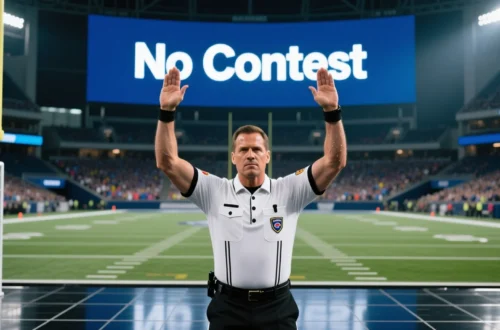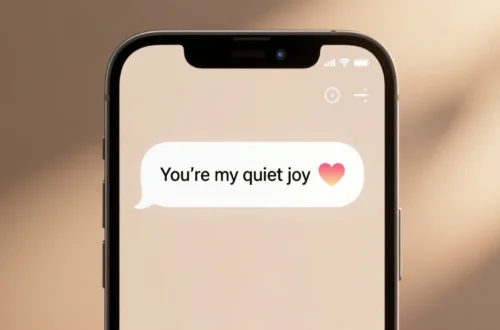Hey there, text-lover 👋!
Ever had someone drop “PPL” in a group chat and you paused, thinking “What’s that stand for again?” If you’re someone who texts friends, scrolls social media, or games online, you’ve probably seen it.
This article is for you — whether you’re Gen Z, a social-media fan, gamer, or just curious about modern slang. We’ll unpack what “PPL” means in text, why it’s used so often, and how you can use it naturally — without misunderstandings. Understanding such abbreviations helps you keep your chats smoother and stay in sync with online culture. Let’s dive in and decode “PPL”.
Definition & Meaning
PPL is a shorthand for “people.”
In digital chats, instead of typing the full word people, many opt for ppl to save time and characters.
Example:
Friend A: “So many ppl came to the party last night.”
Here, “ppl” = “people”.
Usage nuance:
- It’s casual and informal — used in texting, social posts, comments.
- If it appears in all-caps (PPL) or in a professional text, check context — it might mean something else (e.g., in marketing “PPL” can be “Pay Per Lead”).
In short: when you see “ppl”, think “people”. Simple, quick, informal.
Background & History
Abbreviations like “ppl” come from the early days of digital communication — when character limits (SMS), fast chats, and online forums encouraged people to shorten words.
As texting on mobile phones and instant messaging (like chatrooms, early social platforms) became popular, words such as people were chopped down to ppl for brevity.
Over the years, this shorthand became embedded in everyday online chat, social media posts, gaming conversations, and comment threads. What started as a character-saving trick turned into a common piece of internet slang. Today, “ppl” is recognized by many slang glossaries and texting dictionaries as meaning “people”.
Usage in Various Contexts
Text Messages & Group Chats
Example:
Sam: “I’ll invite all the ppl from work for dinner.”
Here “ppl” = “people from work”.
Social Media Posts or Comments
“Too many ppl think they know everything.”
Quick, casual, informal.
Gaming / Online Community Chats
Example:
Gamer1: “Need 2 more ppl for raid.”
Here “ppl” = “players / people” ready to join.
Professional or Formal Communication
In formal writing or business context, avoid “ppl”. Use “people” instead.
Example: Instead of “We have many ppl in the team,” say “We have many people on the team.”
Common Misconceptions & Clarifications
- ❌ Misconception: “PPL” always means something deep or slangy beyond “people”.
✅ Clarification: Most of the time, it simply means “people.” - ❌ Misconception: “PPL” is formal or professional.
✅ Clarification: It’s informal, casual — best for personal chats, not formal writing. - ❌ Misconception: “ppl” is always lowercase.
✅ Clarification: In slang texting it’s often lowercase (“ppl”), but in certain acronyms or professional uses (“PPL” uppercase) it could mean something else. Context is key.
Similar Terms & Alternatives
| Term | Meaning | Tone |
|---|---|---|
| ppl | People | Casual, informal |
| folks | People, group of people | Friendly, neutral |
| crew | Group of friends/people | Informal, social |
| humans | People, in a light-hearted way | Casual |
If you’re chatting casually, “ppl” works fine. But in more formal or public-facing text, consider “people”, “folks”, or “group”.
How to Respond When Someone Uses “PPL”
Casual Response
Chat: “Me and a few ppl are going out tonight.”
You: “Cool — I’ll tag along with you guys!”
Funny Response
Chat: “ppl at this party are wild 😂”
You: “Yup, ppl like that always show up!”
Professional Response
If someone uses “ppl” in a workplace chat:
You: “I believe many people are still waiting for feedback.”
(Replace “ppl” with “people” for clarity.)
Privacy-Conscious or Clarification Response
If you’re unsure:
You: “By ppl, did you mean people from the team or external people?”
Regional or Cultural Differences
“ppl” is widely used in English-speaking online communities (US, UK, Canada, Australia).
In other regions, where English is a second language, people may still understand it but might prefer full “people” or other variations.
Cultural takeaway: when writing to a global audience or more formal context, use “people” rather than “ppl”.
Comparison with Similar Terms
| Abbreviation | Meaning | Common Platform | Formality |
|---|---|---|---|
| ppl | People | Texting, social media | Informal |
| IDK | I Don’t Know | Texts, chats | Informal |
| TBH | To Be Honest | Social posts, DMs | Semi-casual |
| folks | People / group | Casual chat, blogs | Neutral |
Usage in Online Communities & Dating Apps
On apps like Tinder, Bumble, or social platforms:
“Looking for chill ppl to hang with.”
Here, “ppl” keeps the tone casual, friendly.
In gamer forums or Discord:
“Need 3 more ppl for raid.”
Again informal, quick.
Tip: Use “ppl” when you’re in relaxed, peer-to-peer conversation. For first impressions or formal posts, use “people”.
Hidden or Offensive Meanings
The good news: “ppl” has no inherently offensive meaning in its common use.
But tone matters — writing “those ppl” in a negative context could feel dismissive or rude. Just like using any word casually can lead to misunderstanding.
Suitability for Professional Communication
In professional emails, official documents, academic writing — avoid “ppl”. It comes across as too informal.
Instead use: “people”, “team members”, “colleagues”.
Example: “We are gathering feedback from the people in the department.”
FAQs
1. What does ppl mean in text?
It means “people” — a shorthand used in chatting and online messages.
2. Is ppl slang?
Yes, it’s informal internet slang for “people”.
3. Can ppl mean something else?
Sometimes uppercase “PPL” might be used as an acronym (e.g., Pay Per Lead in marketing) — always check context.
4. Is it rude to use ppl?
Not inherently — but if used dismissively (“those ppl”), it could feel negative.
5. Is it okay to use ppl in business emails?
Better to avoid it. Use “people” instead for clarity and professionalism.
Conclusion
In short — “ppl” simply means “people” in most texting and social contexts. It’s casual, quick, and useful in informal chats. Just remember: if you’re writing formally, talking to varied audiences, or unsure of tone — go with “people”.
Next time you see “ppl” in a message, you’ll know exactly what it means and how to respond like a pro. 😉






